
The cinema of France comprises the film industry and its film productions, whether made within the nation of France or by French film production companies abroad. It is the oldest and largest precursor of national cinemas in Europe, with primary influence also on the creation of national cinemas in Asia.
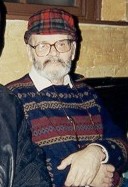
Lucio Fulci was an Italian film director, screenwriter, and actor. Although he worked in a wide array of genres through a career spanning nearly five decades, including comedies and spaghetti Westerns, he garnered an international cult following for his giallo and horror films.

Fantastique is a French term for a literary and cinematic genre and mode that is characterized by the intrusion of supernatural elements into the realistic framework of a story, accompanied by uncertainty about their existence. The concept comes from the French literary and critical tradition, and is distinguished from the word "fantastic", which is associated with the broader term of fantasy in the English literary tradition. According to the literary theorist Tzvetan Todorov, the fantastique is distinguished from the marvellous by the hesitation it produces between the supernatural and the natural, the possible and the impossible, and sometimes between the logical and the illogical. The marvellous, on the other hand, appeals to the supernatural in which, once the presuppositions of a magical world have been accepted, things happen in an almost normal and familiar way. The genre emerged in the 18th century and knew a golden age in 19th century Europe, particularly in France and Germany.

The House by the Cemetery is a 1981 Italian horror film directed by Lucio Fulci, co-written with Dardano Sacchetti and Giorgio Mariuzzo, and starring Catriona MacColl, Paolo Malco, Ania Pieroni, Giovanni Frezza, Silvia Collatina and Dagmar Lassander. The third and final installment in Fulci's Gates of Hell trilogy, preceded by City of the Living Dead and The Beyond, the plot revolves around a series of murders committed by a ghoulish and demonic serial killer taking place in a New England home that happens to be hiding a gruesome secret within its basement walls.
John Lafia was an American film director and screenwriter. He was best known for co-writing the slasher film Child's Play (1988) with Don Mancini.

Fantasporto, also known as Fantas, is an international film festival, annually organized since 1981 in Porto, Portugal. Giving screen space to fantasy/science fiction/horror-oriented commercial feature films, auteur films and experimental projects from all over the world, Fantasporto has created enthusiastic audiences, ranging from cinephiles to more popular spectators, with an annual average of 110,000 attendees. It was rated in Variety as one of the 25 leading festivals of the world. In its 27th edition in February 2006 the festival reached 104,000 people and 5,000 media references, both domestic and international, with a record of 187 hours of TV time. Present in Porto were about 100 members of the foreign press and about 250 Portuguese journalists and media representatives.
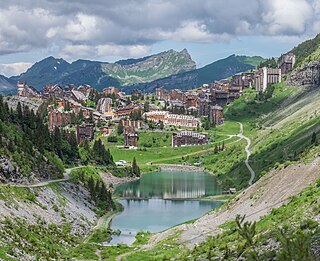
Avoriaz is a French mountain resort in the heart of the Portes du Soleil. It is located in the territory of the commune of Morzine. It is easily accessible from either Thonon at Lake Geneva or Cluses station on the A40 motorway between Geneva and Chamonix. Either way one follows the D902, Route des Grandes Alpes, to Morzine and then the D338 running from Morzine to Avoriaz. Snow chains are often necessary. Avoriaz is built on a shelf high above the town of Morzine, which is among the pioneering towns of skiing with its first lifts dating back to the early 1930s. Today Avoriaz is one of the major French ski destinations catering for all standards of skiing and ranks among the top snowboarding destinations of the world. Apart from snow-based pursuits, Avoriaz is also a centre for trekking, golf, VTT and other outdoor activities during the summer. Cars are forbidden in Avoriaz. The resort is designed to be fully skiable. Other transport around the resort includes horse-drawn sleighs and snowcats during winter.
Cinephilia is the term used to refer to a passionate interest in films, film theory, and film criticism. The term is a portmanteau of the words cinema and philia, one of the four ancient Greek words for love. A person with a passionate interest in cinema is called a cinephile, cinemaphile, filmophile, or, informally, a film buff. To a cinephile, a film is often not just a source of entertainment as they see films from a more critical point of view.

Catherine Jacob is a French film and theatre actress who has won a César Award for her role in Life Is a Long Quiet River (1988), and was nominated for Best Supporting Actress in Tatie Danielle (1990), Merci la vie (1991) and Neuf mois (1994). She has been two-time president of the Lumières Award. She is known for her voice and her charisma.
La Symphonie fantastique is a 1942 French drama film by Christian-Jaque and produced by the German-controlled French film production company Continental Films. The film is based upon the life of the French composer Hector Berlioz. The title is taken from the five-movement programmatic Symphonie fantastique of 1830. The film lasts around 90 minutes and was first shown at the 'Normandie' cinema in Paris on 1 April 1942. The posters at the premiere contained the sub-title 'La Vie passionnée et glorieuse d'un génie'.

La Nuit fantastique is a 1942 French fantasy film directed by Marcel L'Herbier. It is regarded as one of the most successful films made in France during the German occupation.

Julien Maury and Alexandre Bustillo are French filmmakers who work together on their projects. They list their influences as Dario Argento, Roman Polanski, Clive Barker and John Carpenter.
Julien Magnat is a French filmmaker and television screenwriter and director. He is best known for Bloody Mallory (2002) and Faces In The Crowd (2010).
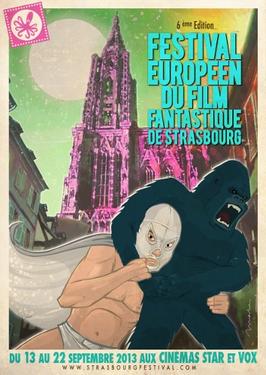
The Strasbourg European Fantastic Film Festival (SEFFF), is an annual film festival held in Strasbourg, France, that focus on fantasy, science fiction and horror films. The festival takes place annually in September since 2008, it derives from the Spectre Film Festival that was created in 2005 by the organization Les Films du Spectre.
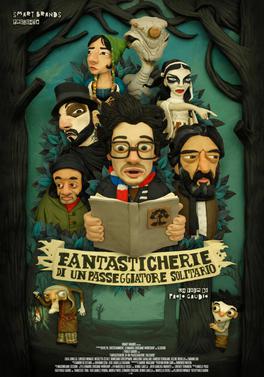
Reveries of a Solitary Walker, also known as Reveries of a Lonely Walker and Reveries of a Solitary Stroller, is a 2014 Italian live-action/claymation fantasy film directed by Paolo Gaudio, inspired by Reveries of a Solitary Walker by Jean-Jacques Rousseau. It was screened at the Sci-Fi-London festival, and later released in the United States by Uncork’d Entertainment. It is also available on Prime Video.
The Paris International Fantastic Film Festival (PIFFF), was created in 2011 by the Paris Ciné Fantastique association as a venue for horror, thriller and science fiction films. It takes place in Paris every year in December, and has been recently presented by television station Ciné+ OCS and Mad Movies magazine. PIFFF has prizes in both feature length and short films. The most recent festival in December 2018 showed 26 films over 8 days and attracted over 10,000 attendees, making it one of the largest film festivals in the city of Paris.
The Paris International Festival of Fantastic and Science-Fiction Film was a film festival hosted in France between 1972 and 1989. The event was affiliated with film periodical L'Écran fantastique, and chaired by its Chief Editor Alain Schlockoff. The festival is remembered for its raucous atmosphere, which left a durable impression on a number of attending filmmakers. It was one of the founding members of the European Fantastic Film Festivals Federation in 1987.

L'Écran fantastique is a French magazine created in 1969 by Alain Schlockoff, dedicated to fantastic and science-fiction cinema.

Coralie Fargeat is a French filmmaker. She gained recognition with her 2017 debut feature film Revenge, for which she received awards from several independent film festivals. This was followed by her second feature, The Substance (2024), a satirical body horror film starring Demi Moore, which won her the Cannes Film Festival Award for Best Screenplay.
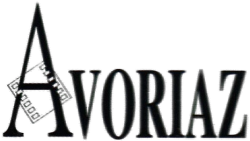
The Avoriaz International Fantastic Film Festival was a film festival held in the French resort of Avoriaz between 1973 and 1993. It was the precursor to the current Gérardmer International Fantastic Film Festival.
Unlike many such events, the Avoriaz festival did not have grassroots origins. Organized as a vehicle for the eponymous skiing resort, it intended to promote the genre and its host town to a mainstream audience, with a level of glamour typically associated with more accepted film genres. The New York Times called it "a great success, the high point of many junketing French journalists' winters" and the Financial Times wrote that its two decades of existence had turned Avoriaz into "a momentary movie mecca". In its time, the festival was hailed as the premier fantasy film event in the world, although recent assessments have ranked Sitges, which outlasted it by a considerable margin, as the genre's foremost gathering.














